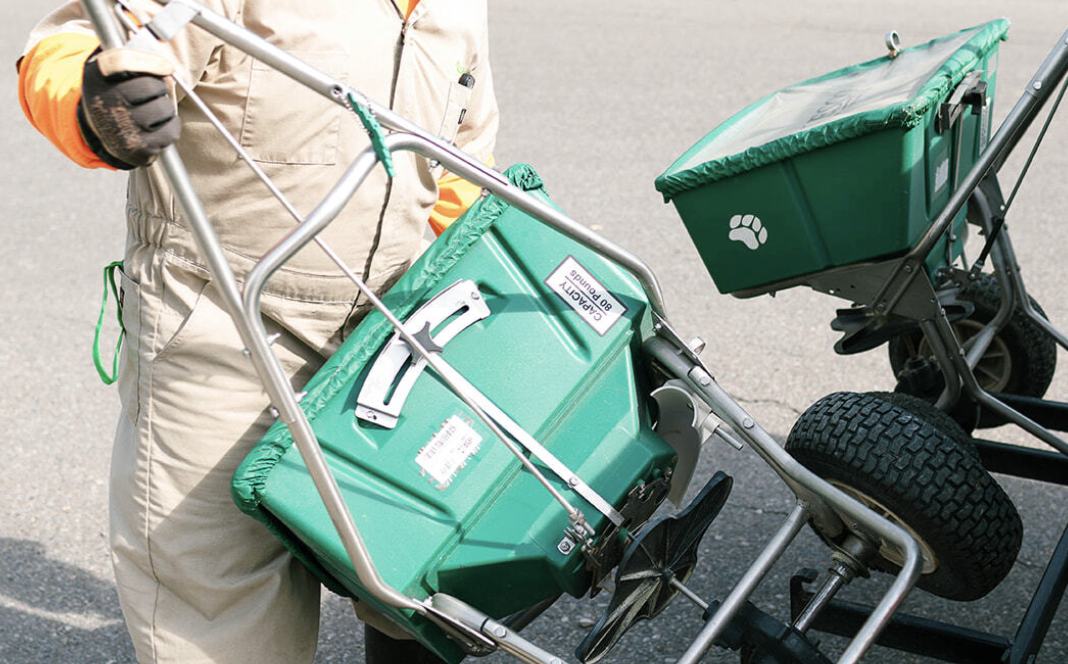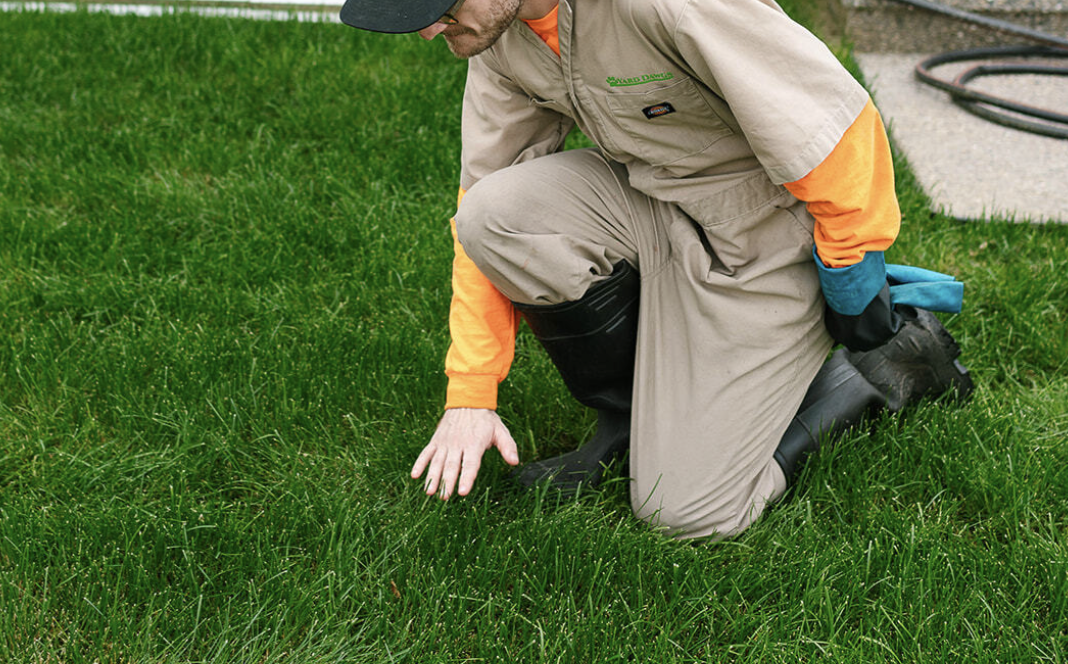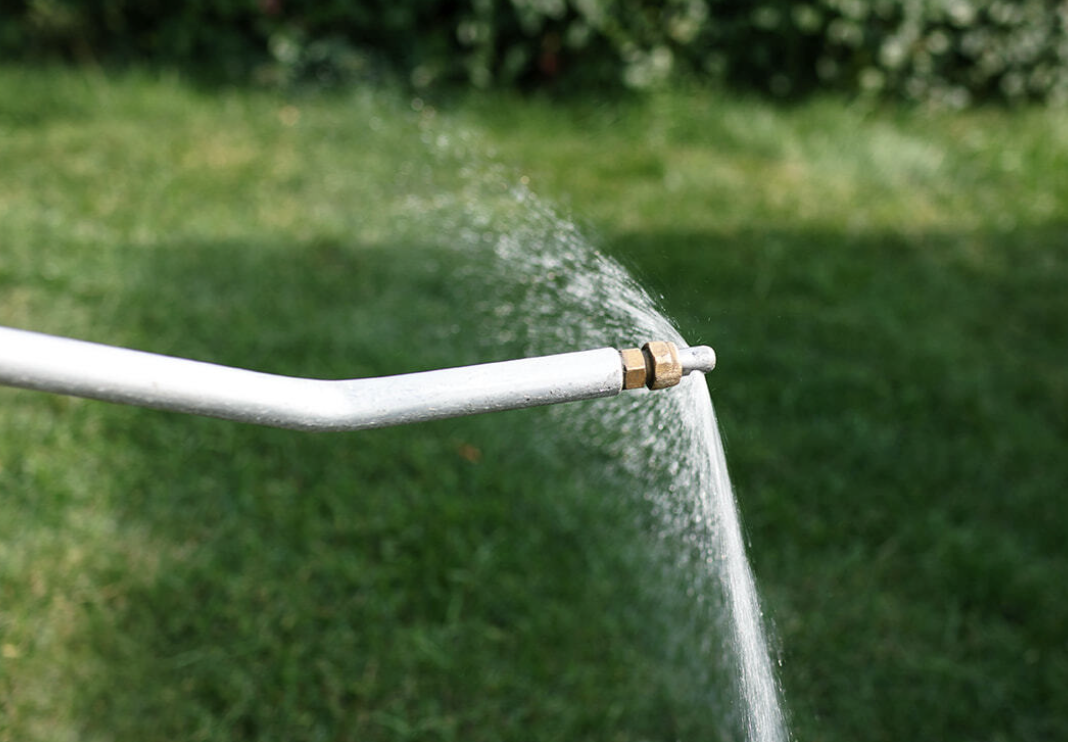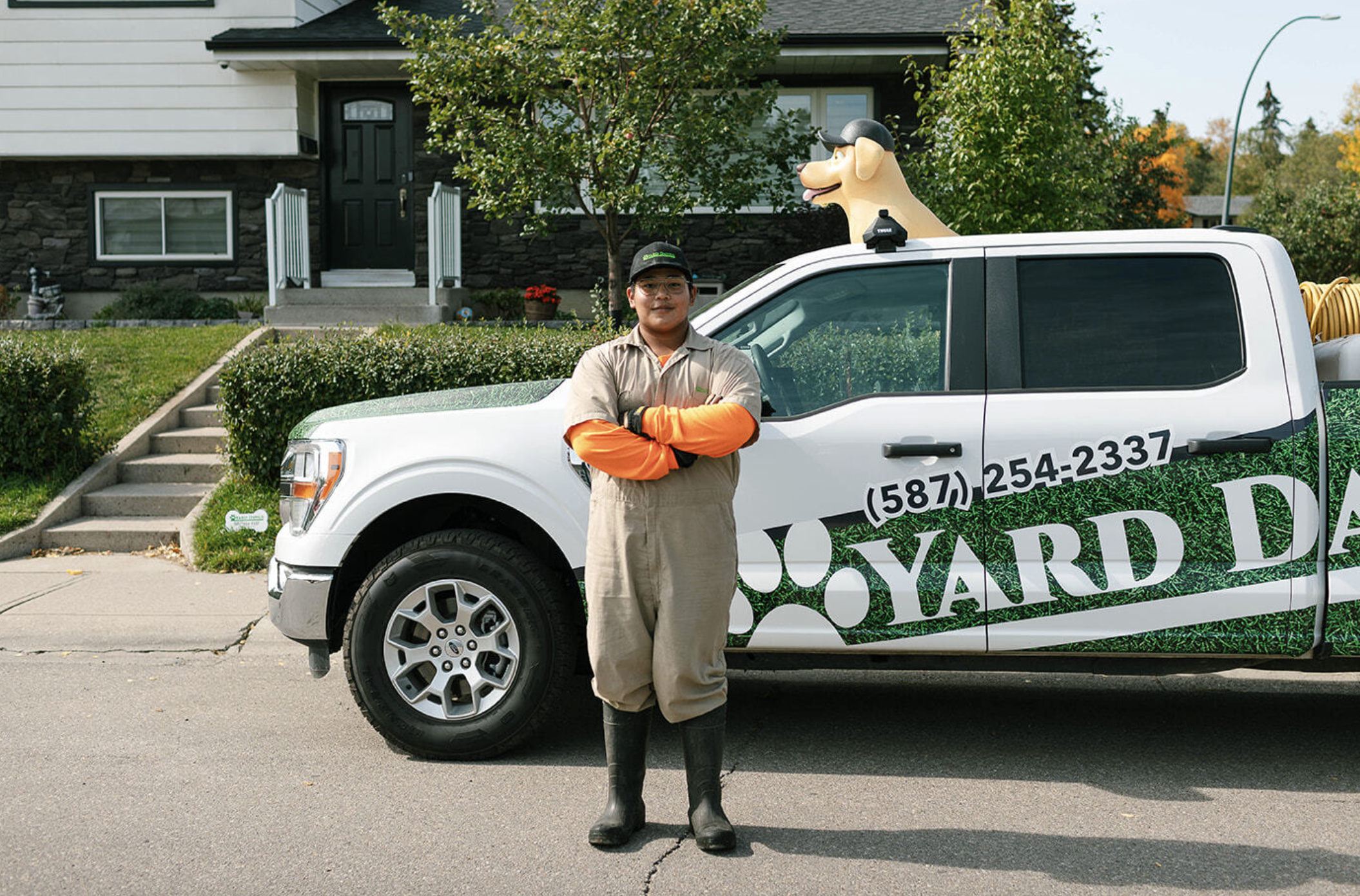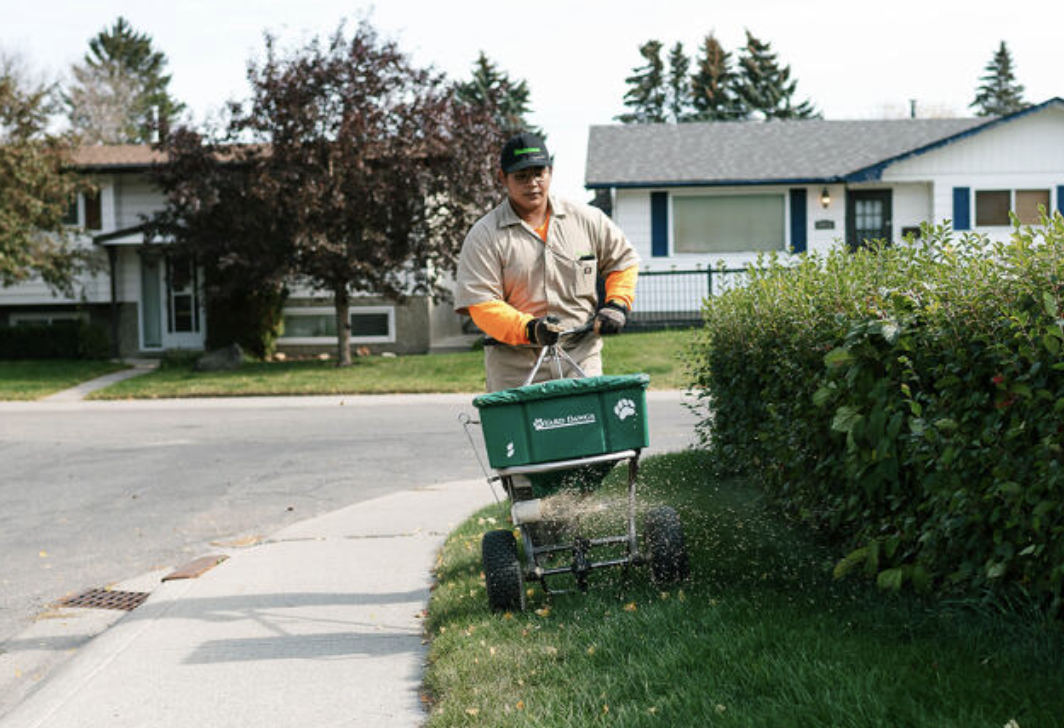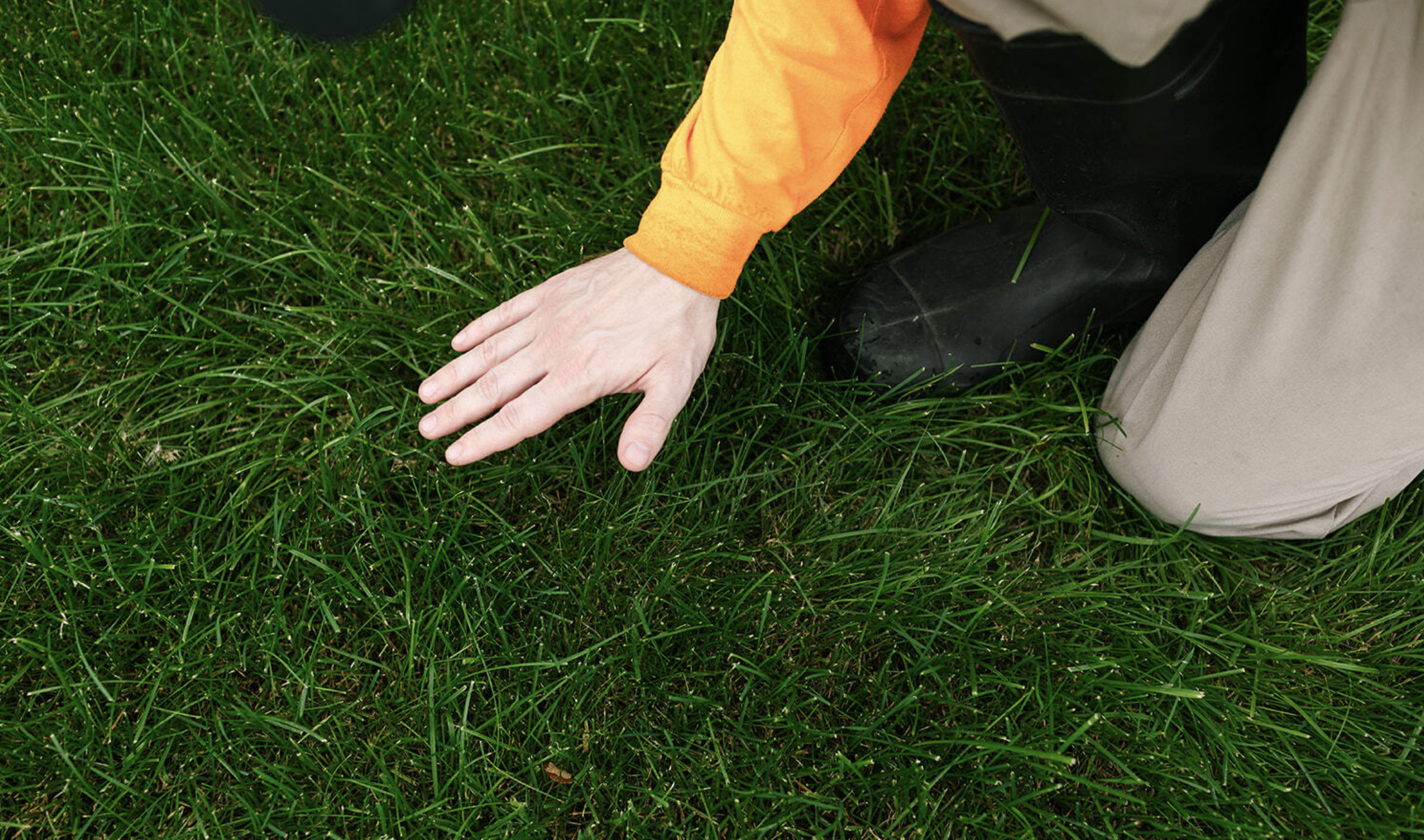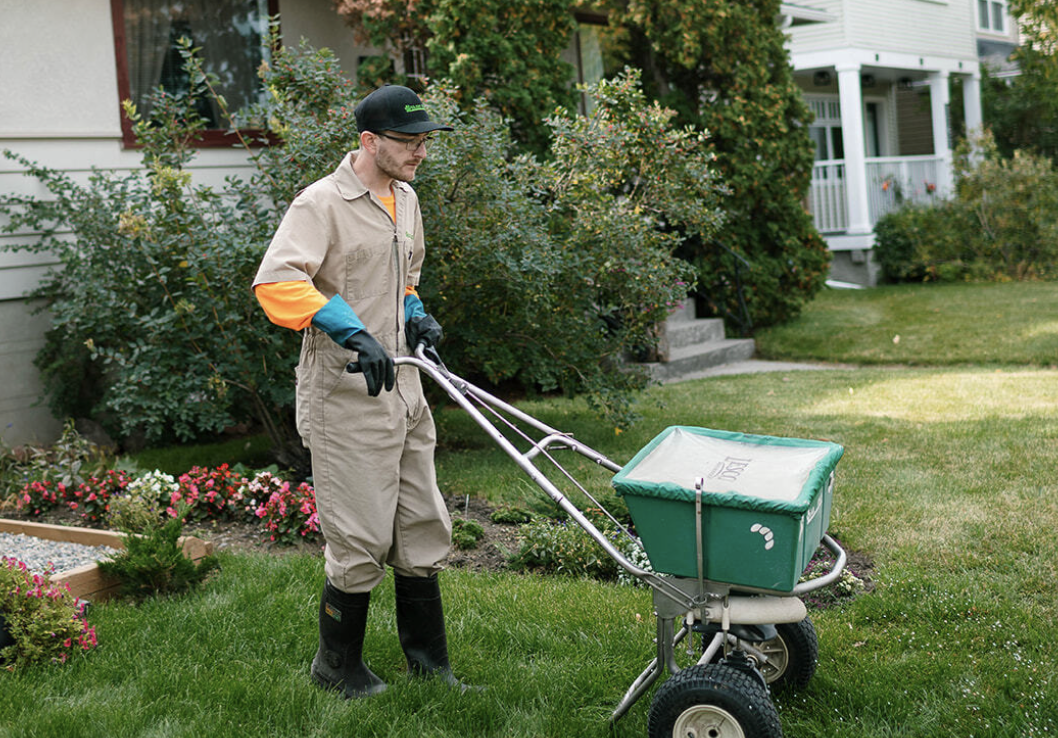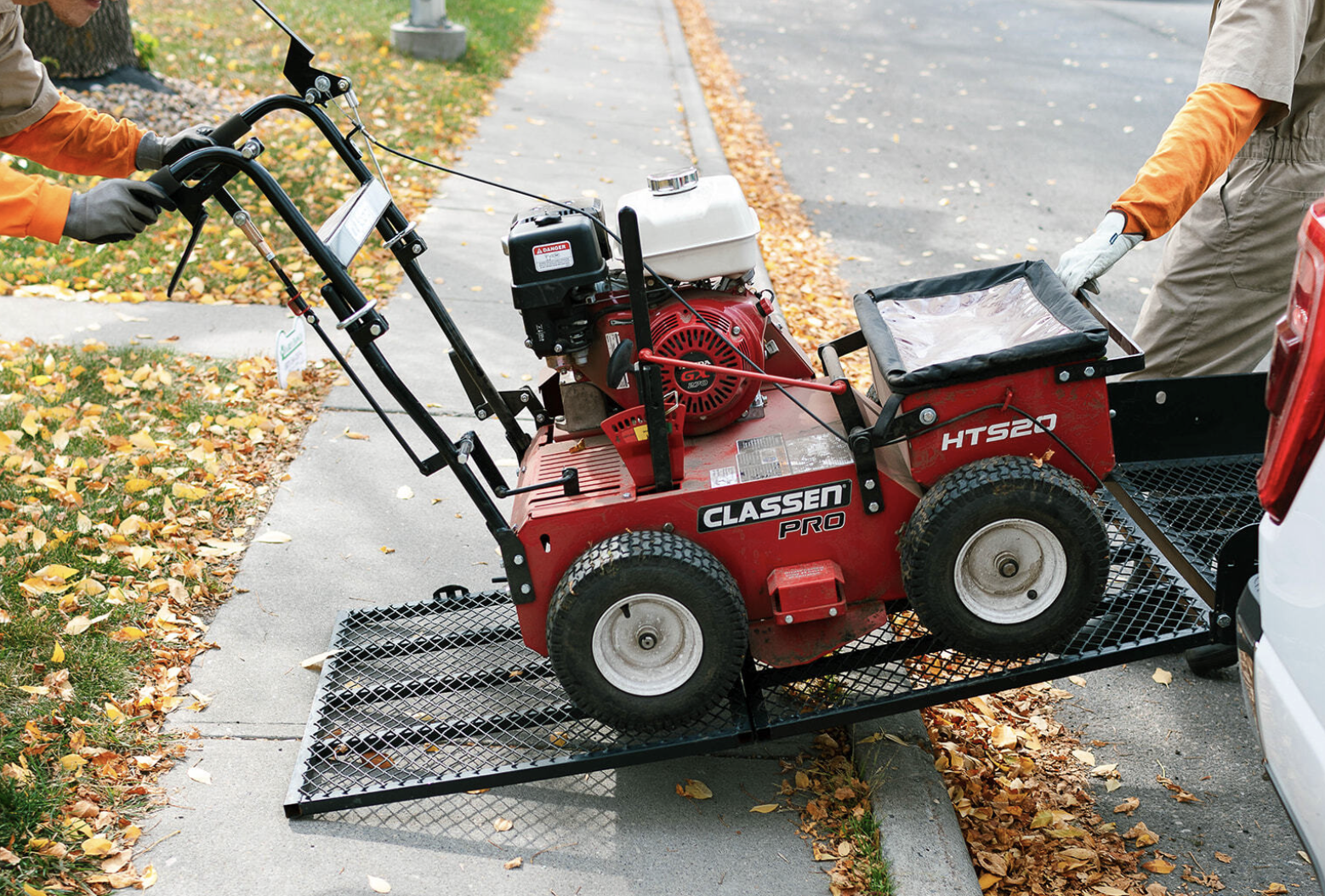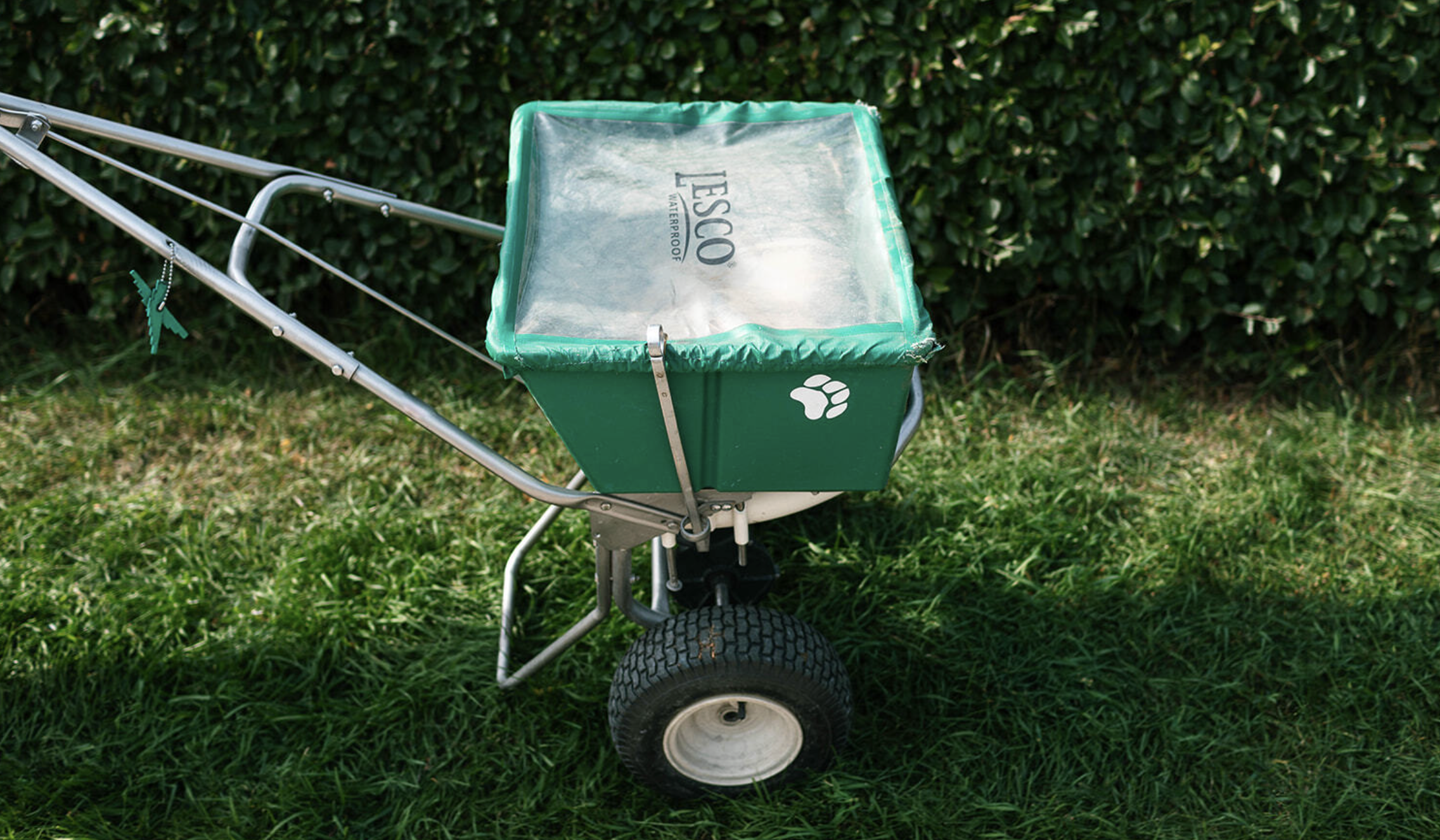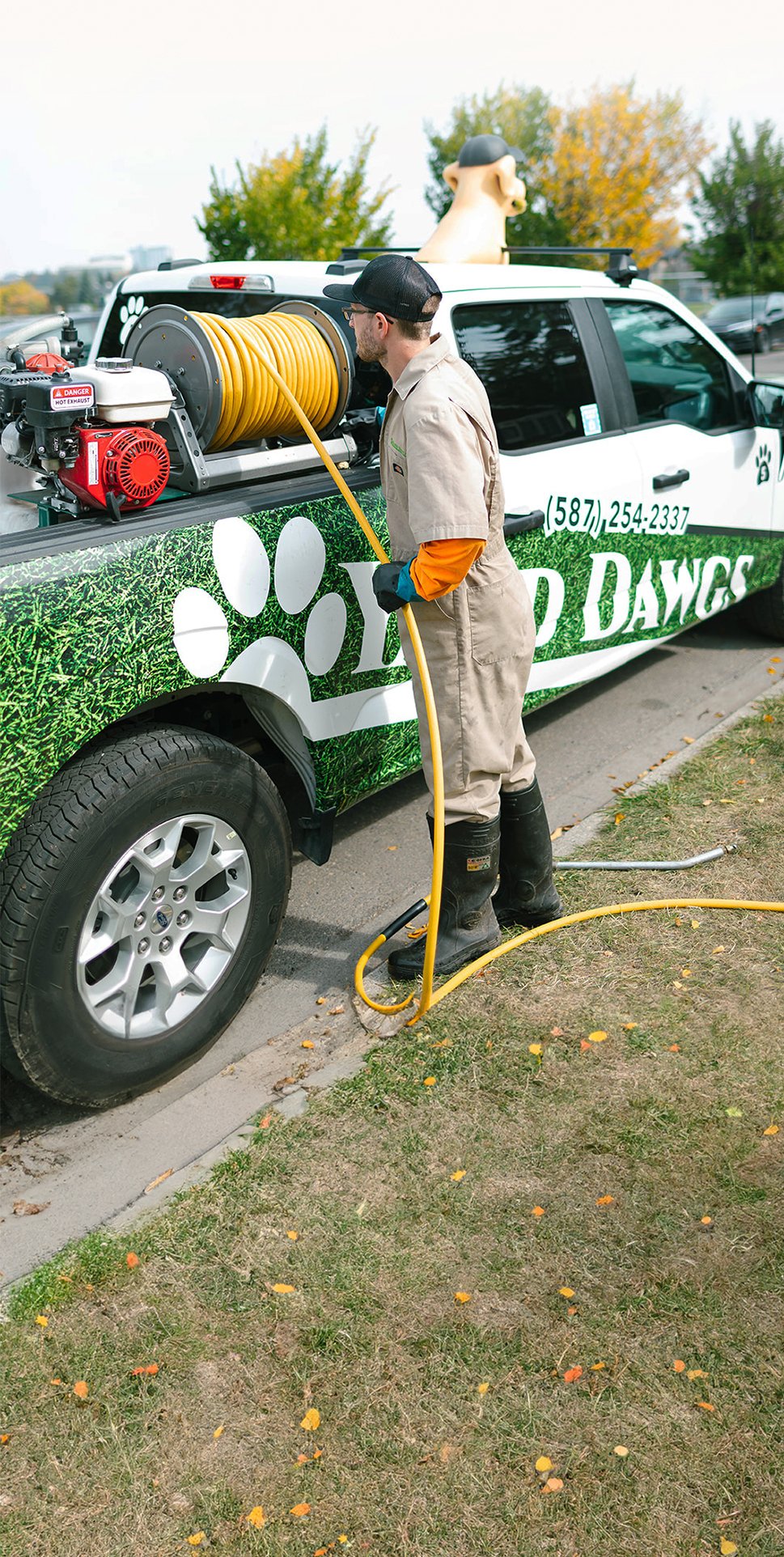Block paving can be a beautiful addition to any landscape. However, it’s also going to take special care to maintain. If it is properly installed, a barrier will be laid to prevent ground growth from coming up through the pavers. However, even when properly installed, that barrier can wear down and shift over time, resulting in the eventual growth of weeds in your driveway, concrete pavers, and other areas where you wouldn’t expect to find them.
The problem here isn’t just that weeds are unsightly. They are, but in this instance, they’re also at risk of causing damage to your paving. The weeds can grow up between the blocks and cause them to shift, become unsettled, and create an uneven walking surface. Fortunately, there is an answer, and it starts by educating yourself on how to stop weeds from growing and then calling the experts at Yard Dawgs lawn care to handle all of your weed control needs.

To keep weeds from growing in your block paving, sealing is usually recommended. In the guide below, we’ll discuss that and why it’s best to keep the pavers clean and free of buildup in the first place to prevent weeds from starting. If you’ve got a properly installed paver patio or walkway, it shouldn’t have a huge problem with weeds. However, if you notice that it’s starting to show signs of wear as it ages, it might be time to address the problem.
Here's what you need to know.
Seal the Pavers
One great way to stop weeds from growing is to completely de-weed the area and then fill the cracks between blocks with sand. Then, you can add a sealant on top that will prevent weeds from coming up and damaging your paving. It’s a process that will take some time (and some special equipment that you may or may not have), so be sure to do it properly and gather the necessary items before you get started.
First, you’ll gather your weed killer, pressure washer, broom and small brush, DIY sprayer, and protective gloves and clothing. You’ll also need something for disposing of the weeds and the joint sand and sealer that you’ll be using, along with the appropriate application tools. If you don’t own a pressure washer, you can rent one from an equipment rental supplier or your local home improvement store.
Before you start pulling weeds, you’ll want to apply a standard weed killer that will help move along the dying process. This can also make them easier to remove and guarantee that they don’t come back. Which weed killer should you use? Ultimately, you have to decide what you like best, but remember that you get what you pay for with this investment.
Even if there aren’t any weeds yet, it doesn’t hurt to spray a little weed killer before you sand and seal the pavers. Prevention will keep them from trying to grow even with the sealant applied, and guarantee that your pavers last for much longer than if they were unsealed. Make sure that the sealant has time to dry before any rain or other water gets to it. The product that you choose to use will tell you how long it takes to set and cure.
This is a big task and can take a lot of time for someone who doesn’t have experience. If you’re feeling overwhelmed, consider hiring the experts at Yard Dawgs to handle all of your lawncare needs.
Frequently Asked Questions
To help you better understand this issue and how to resolve it, let’s cover some commonly asked questions related to this topic.
Will a Barrier Help?
Some people assume that putting down a barrier, like discussed above, will be enough. That will take care of the existing ground and potential weeds, yes, but what about those weeds that come from seeds and dirt blown into the cracks on top of that barrier? You still need a secondary solution for weed control, which is where sealing the paving blocks comes in handy.
How Do Weeds Get In There?
We’ve all seen it—you have a solid concrete or asphalt surface, and suddenly, there’s a weed growing through it. The reality is that seeds don’t need more than a nice deep gap to grow. And if that gap fills with water and dirt, all the better. That’s what makes your pavers a prime target for trouble, and why prevention is better than having to find a cure.
What’s the Sand Used For?
The sand is designed to assist with moisture buildup and ground shifting, keeping the pavers more intact because they aren’t absorbing the water themselves. It also creates a foundation for the sealant, making it more likely that the weeds will stay away for good. If you attempt to seal pavers without sand, you’re going to be applying sealant and killing weeds a lot more often, if it even takes.
What if I Have Cracked Pavers?
If any of your block paving has cracked or shifted because of the weeds, you’ll want to remove the paver(s) and replace them properly so that they are all in one piece and in the right position. That way, when you lay the sand between the pavers, they will have a secure base to hold them in place while you apply the sealant on top.
Can I Just Hire Someone?
Yes, that’s next on our list. While there are several things that you can do on your own when it comes to weed control, there are also situations where it’s best to call in the professionals. You can choose to have a one-time service performed or set up ongoing maintenance, depending on your needs. If you choose, you can even combine different landscaping services to save on labor costs by doing more at once.
What About Other Concrete and Hard Surfaces?
Weeds can grow in patio joints or sidewalk joints, and most of them are sprouting in random dirt on top of the concrete, not up through the ground and the concrete. Therefore, the best way that you can prevent this is to keep your patios, sidewalks, driveway, and pavers clean and free from dirt and debris.
This can be done with regular sweeping and hosing off (or even power washing) of the surfaces that have joints and cracks where dirt and seeds can build up. If you notice weeds, remove them right away before they get a chance to spread. If you’re worried that they will cause damage in their removal because they’ve gotten too big or grown under a paver, you might want to use a little extra care. Or, better yet, you can just hire the pros to handle all of your weed control needs.
Hire the Professionals Instead
While you now have all the information that you need to succeed at keeping weeds out of your block paving, that doesn’t mean that you need to go through the process on your own. It’s a big task and takes a lot of time and attention to detail. If you’re not experienced, it could be even more difficult or you could risk causing bigger problems. As we mentioned, it’s sometimes better to hire experts and this is the ideal situation for that. Plus, we know how to handle the chemicals and set your lawn and landscaping up for prevention in the first place so that you have fewer weeds in the end.
The team at Yard Dawgs lawn care is here to assist with all of your weed control needs, including removing and preventing weeds between pavers, on cement and concrete driveways, and through other areas where they don’t belong. Call us today and we’ll discuss how we can get your property in shape, from the lawn to the pavers, the landscaping, and more.


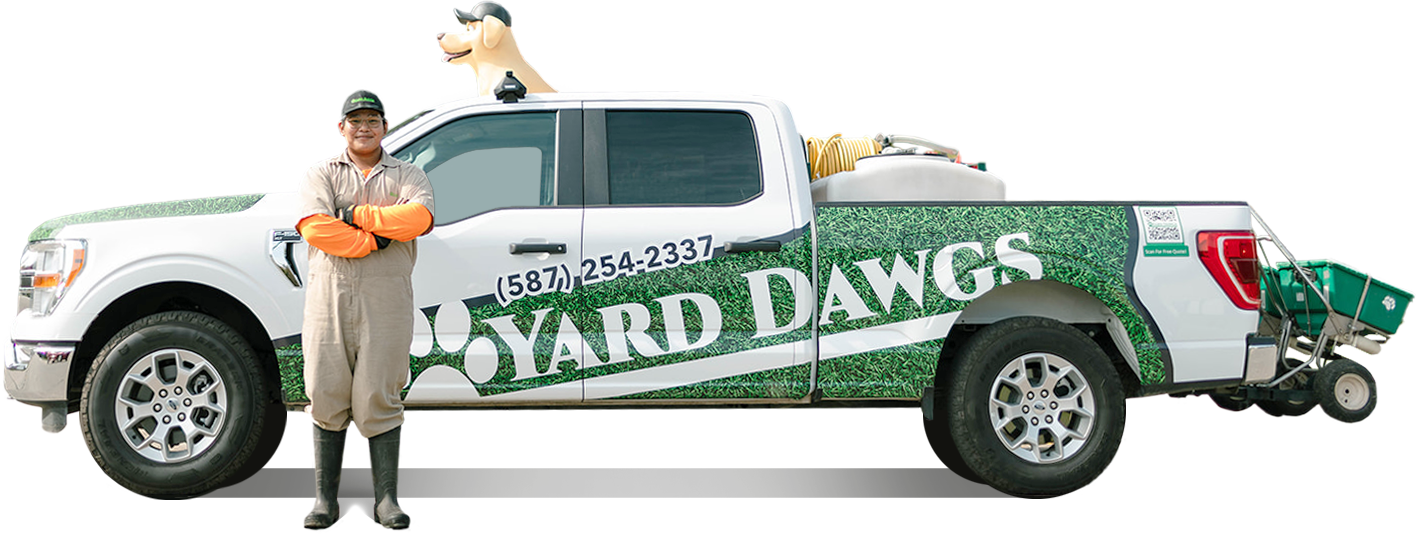


.png)
